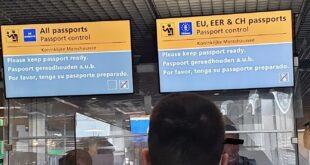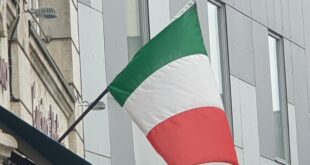“Press Statement of the Central Council of the African Community in Germany e.V. (Zentralrat der afrikanischen Gemeinde in Deutschland e.V.) on the murder of Oury Jalloh.
Fixed to a fireproof mattress with his hands and feet shackled, Oury Jalloh was found burnt in cell N ° 6 of the Dessau police station on 7 January 2005.
The horrible image of the charred remains of the asylum-seeker from Sierra Leone has meanwhile gone around the world.
Almost 13 years later, the cause of Oury Jalloh’s death has still not been found by the judiciary because of an obvious collusion between the relevant prosecutors and the police.

According to the police, Oury Jalloh committed suicide with a fire lighter that was found in his cell only days after his death. The judiciary refused to look into the suspicion that Oury Jalloh could have been murdered by police.
Only the results of the various investigations commissioned by the Initiative in Memory of Oury Jalloh led to the beginning of serious investigations by the Dessau Public Prosecutor’s Office.
Without the efforts of the Initiative in Memory of Oury Jalloh, the African/Black Community, its supporters and the research of the media, the judiciary would have long stopped proceedings of the case.
The Central Council of the African Community in Germany is, like most members of the African/Black Community, convinced that Oury Jalloh was murdered by German police for racist reasons.
The new findings on the case (reports from expert appraisers, new position of the Attorney General of Dessau, etc.), which were recently published, finally forced the German prosecutors to immediately reopen the case of Oury Jalloh and investigate a possible case of murder.

It is a shame that today in the Federal Republic of Germany, citizens have to raise funds to resolve a case of death. When it comes to denying those seeking protection the right to asylum, even against international law, and to deport them, the federal government acts quickly and passes new laws.
But when it comes to protecting those seeking protection (“asylum seekers”) from right-wing and racist terror and murder, the federal government remains silent and almost powerless.
We call on the Federal Republic of Germany and the State of Saxony-Anhalt to reimburse the Initiative in Memory of Oury Jalloh for all the costs it incurred for the commissioned reappraisals that have successfully led to the reopening of investigations.
Through the chains of investigation mishaps, acquittals, resumptions and suspensions of the trial, the German judicial authorities have definitely disqualified themselves for the credible clarification of the death of Oury Jalloh. The confidence of the African community in the German judiciary regarding the investigation of the death of Oury Jalloh has been severely damaged.
That is why the Central Council of the African Community in Germany calls for the establishment of an independent international commission to investigate the death of Oury Jalloh.
We continue to call for the complete clarification of the death of Oury Jalloh.
This is about the credibility of our constitutional state.
A strong signal must be sent to criminals in police uniform. They must understand that they will not receive protection, either from citizens or from other state insitutions, such as the judiciary, if they violate the principles of the rule of law.”
Signed: Moctar Kamara,
Chairman, Central Council of the African Community in Germany e.V.
(Vorsitzender, Zentralrat der afrikanischen Gemeinde in Deutschland e.V.),
Berlin, 07 December 2017
 THE AFRICAN COURIER. Reporting Africa and its Diaspora! The African Courier is an international magazine published in Germany to report on Africa and the Diaspora African experience. The first issue of the bimonthly magazine appeared on the newsstands on 15 February 1998. The African Courier is a communication forum for European-African political, economic and cultural exchanges, and a voice for Africa in Europe.
THE AFRICAN COURIER. Reporting Africa and its Diaspora! The African Courier is an international magazine published in Germany to report on Africa and the Diaspora African experience. The first issue of the bimonthly magazine appeared on the newsstands on 15 February 1998. The African Courier is a communication forum for European-African political, economic and cultural exchanges, and a voice for Africa in Europe.
































